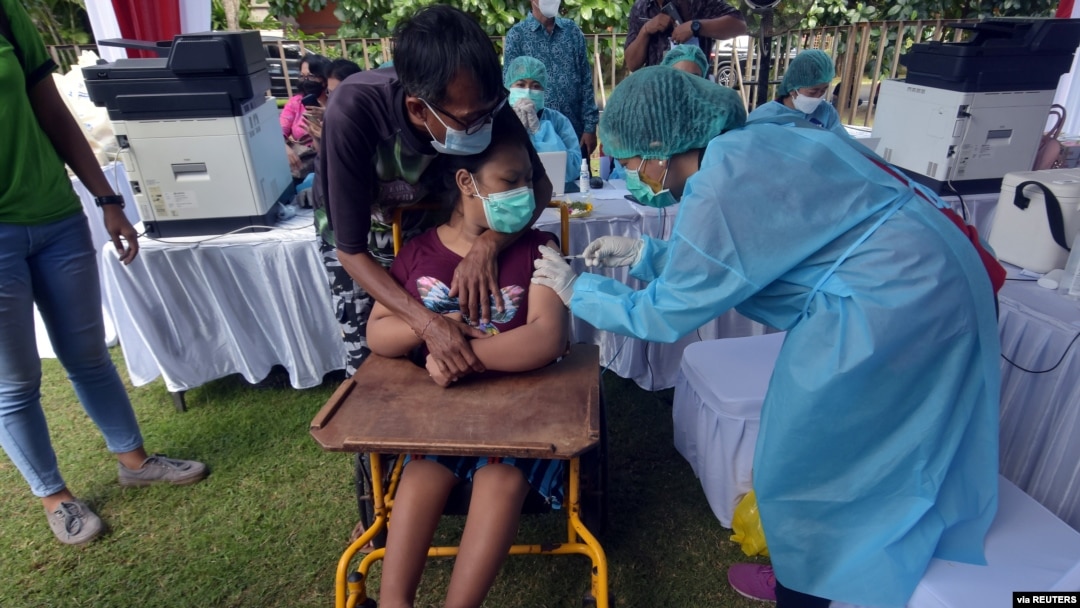Indonesian authorities say the nation’s daily coronavirus positivity rate has dropped below 5% for the first time since the pandemic began, a strong indication the nation’s second wave of COVID-19 infections could be easing.
Indonesia’s positivity rate - the proportion of people testing positive - peaked at 33.4% in July when new cases spiked dramatically, driven by the highly contagious Delta variant, making the country Asia’s COVID-19 epicenter.
But the country’s independent COVID-19 data initiative, known as KawalCOVID-19, reported Tuesday the infection rate fell to 4.57%, the lowest since March 2020, when Indonesia's first cases were reported. The WHO has said that a positivity rate above 5% indicates COVID-19 is out of control.
KawalCOVID-19 co-founder Elina Ciptadi told the Reuters news agency the trend is encouraging, although she cautioned that official data does not cover all cases and deaths.
The initiative reports that since the COVID-19 peak in July, when Indonesia implemented tighter restrictions on public gatherings, the average positivity rate has fallen steadily, from 23.8% in the first week of August, to 11.3% in the final week of that month, to 6.2% on average so far in September.
The Indonesian government lifted coronavirus restrictions that were eased further Monday, with most areas on Java Island downgraded, allowing conditional operation of malls, factories, and restaurants.
Indonesian President Joko Widodo urged Indonesians not to be complacent, though, warning that “COVID is always lurking. When our guards are down, [cases] can increase again."
Some information in this report came from Reuters.





